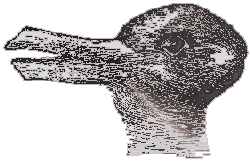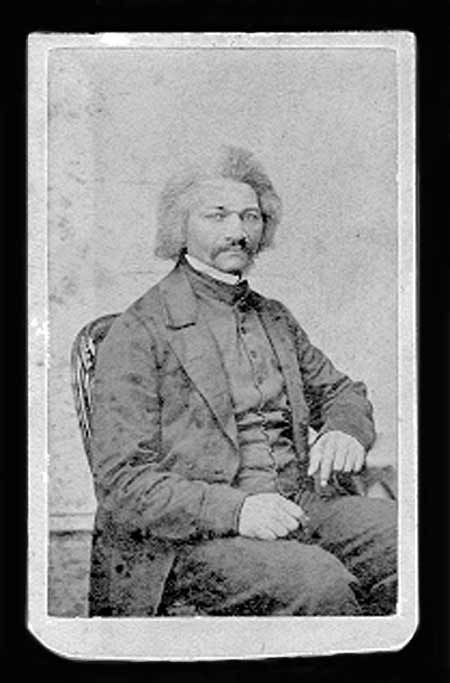 Gregory Eiselein
Gregory Eiselein Gregory Eiselein
Gregory Eiselein
Course Description
 |
|
Frederick Douglass
|
Student Learning Outcomes
When they finish ENGL 385, students should be able to do the following:
--Demonstrate familiarity with selected literary works by United States writers of diverse backgrounds.
--Explain the importance and significance of those works to American culture and American literary history.
--Draw on relevant cultural and historical knowledge to analyze and interpret the literary works studied.
--Communicate in clear and persuasive written prose interpretations of the works studied.
--Verbally communicate in an effective manner insights, interpretive positions, questions, and information about the literary works studied.
--Think independently and critically about issues of identity, race, ethnicity, nationality, multiculturalism, difference, prejudice and discrimination, language, imagination, and literary style within an American cultural context.
--Speak and write self-reflexively about one's own identity and experiences in the United States in a way that acknowledges cultural and historical differences as well as cultural and historical connections.
ENGL 385 builds upon the writing skills learned in Expository Writing and Honors English; this course is preparation for 300-800 level-courses in American literature, American Studies, Cultural Studies, and American Ethnic Studies.
Course Work and Course Policies
Reading. The most important work in this course will be careful, patient, thorough reading of the assigned texts. You will need to finish the assigned readings by the time indicated on the reading schedules. I encourage you to keep a reading journal or take reading notes on each text.
Attendance and Participation. In addition to careful reading, I expect active participation and good attendance from everyone. I am one of those professors who absolutely believe in the educational benefits of a dynamic, interactive classroom. Biology, psychology, and my own experience all tell me that students learn more, absorb more, and remember more in classes where they are expected to respond actively to the course materials, classes where they are expected to participate in the classroom activities and conversations. Thus, lack of preparation for class and irregular attendance will hurt your grade; good attendance and active participation in class discussions will improve your grade.
Because students have different ways of actively contributing to the class, I try to be flexible and open-minded about how I evaluate participation. In general, however, I will generously reward students who contribute week after week to the class discussions with intelligent, thought-provoking comments that demonstrate careful reading of the texts and thoughtful attention to what others have said. Students who skip a lot of class and don't seem to listen to what others have to say and never ever say anything should expect a lower grade for participation.
I expect good attendance of everyone, and I take roll religiously. University policy requires students to attend all scheduled classes in which they are enrolled, and your attendance is absolutely essential to the learning that happens in this course. I do understand, however, that every once in a while circumstances may make it impossible for you to attend. If you miss one or two classes during the semester, don't worry about it. If you miss more that, you may want to start worrying about how your attendance might hurt your grade. To be specific, students who miss no class will earn five extra credit points. Students who miss two weeks of class or four class sessions will receive zero points for attendance (10% of your grade). Students who miss more than three weeks of class (seven or more classes) automatically fail the course.
Course Listserv. I have set up a listserv for our class: engl385@k-state.edu . The purpose of this listserv is to try out ideas, to continue discussions and problem solving begun in class, and to facilitate communication among class participants outside of class. Posting to this listserv is not required; it is here strictly for our convenience. The only rule is this: all postings to the list should be related to our class in some way or another.
I have enrolled everyone using your K-State eIDs. If you want to use a different e-mail address for the course listserv, you need to unsubscribe from your K-State address and then subscribe again from your other address. To do this, log on with your K-State e-mail address and send mail to listserv@ksu.edu with this message:
UNSUB engl385
Then log on with your other e-mail address and send a subscription command from that address to listserv@ksu.edu with:
SUB engl385
If you have technical questions about using a listerv, you might want to check out K-State's listserv information page. You can activate your eID by going to the eID page. If you need help, take a photo ID to the InfoTech Help Desk at 313 Hale Library. InfoTech Help can also be reached by phone (532-7722) and by e-mail consult@ksu.edu.
Written Work and Examinations. The writing in our course will consist of:
1) a few in-class writing assignments (various dates)
2) paper 1: an autobiographical sketch (due Jan. 27)
3) paper 2: a close reading exercise (due Feb. 12)
4) paper 3: a short paper on Hurston or Hansbery (due Mar. 9)
5) paper 4: a set of novel reading exercises on Cisneros (due Apr. 1-13)
6) paper 5: a longer autobiographical essay (due May 4)
Throughout the semester, I will distribute handouts explaining these assignments in more detail. I will also ask you to take a midterm examination and a comprehensive final examination.
Extra-Credit and Make-Up Assignments. If you miss class on a day we do in-class writing, you can make up the missed assignment by writing a review of a poetry or fiction reading, play, or lecture or event related in some way to multicultural America. If you miss no in-class assignments, you may write such a review for extra-credit points. During the semester I will announce these events as I hear of them. If you know of others, please tell the rest of us.
The first step is to attend such a reading, play, or lecture. Compose a brief summary of the event; describe what happened with details. Then give us your thoughtful opinion of the event: Was any particular part of the event moving, brilliant, or clever? What was it like to be there? What was important or significant about the event? The review should be about one (typed, double-spaced) page or so. Please hand in your review no later than 10 days after the event.
This assignment is worth five points: 5 is for one of the best reviews I ever read (I rarely award this score); 4 is for a detailed, specific, insightful review; 3 is the score I will award most often; 2 is for reviews that are pretty vague; and 1 is the score you will earn if I'm not sure you even attended the event. You may hand in as many as three reviews. You may turn in a review anytime before May 13. A maximum of 20 extra-credit points are available: 15 for reviews + 5 for perfect attendance.
Grades. In determining final grades, each course requirement carries the following weight:
Final Examination ......................................................................20%
Midterm Examination.................................................................10%
Paper 5.......................................................................................20%
Paper 3.......................................................................................20%
Paper 2.......................................................................................10%
Attendance, Participation, Papers 1 & 4, In-Class Assignments...20%
Late Papers. I don't usually like to accept late papers, but in certain, limited circumstances I will accept papers after the due date. Assignments will lose a letter grade for every class period that they are late. I like to collect papers at the beginning of class on the due date.
Students with Disabilities. If you need special accommodation in this course for a learning or physical disability, please contact Disabled Student Services in Holton Hall, Room 202 (532-6441), so that they may assist you and me in making those arrangements.
The Honor Code. Kansas State University has an Honor Code, which stipulates that you should do all your academic work at the university individually. Do not collaborate on any academic work unless specifically approved by your instructor. On all of your assignments, exams, and other course work, the following pledge is implied, whether or not it is explicitly stated: "On my honor, as a student, I have neither given nor received unauthorized aid on this academic work."
Perhaps the most serious violation of the Honor Code in an English course is plagiarism—taking or copying someone else's words or ideas as if they were your own. Plagiarism and cheating are serious offenses and may be punished by failure on the exam, paper, or project; the truly gnarly XF grade for the course; and/or expulsion from the university
Complete copies of the academic dishonesty policy are available in the Office of Student Activities and Services in the Union, or you may visit the Honor System web page.
Paper #1: Autobiographical Sketch
For this first assignment I want you to write a sketch of who you are and where you come from. I want you to introduce yourself. Give us some of the luminous details of your life: hometown, unusual experiences, nationality, ethnicity, reasons for choosing K-State, career plans, other plans, crimes or sins you've committed, noble deeds you've done, reasons for taking this course, your non-academic interests, where you live and what you live for, what you do in Manhattan, family, favorite T.V. program, favorite hangouts, favorite movie, favorite band, favorite sports, pet peeves, languages you speak, places you've been, special talents, age, height, weight, year in school, politics, religion, heroes, pets, etc. Tell us something about you that is important to you. Feel free to include or exclude anything about your life. Write in the first person and use a friendly (unless of course you're not friendly), conversational tone.
Length: 1-2 pages should be fine
Graded: Pass/Fail
Due Date: Tuesday, January 27
Required Texts
You will need to purchase a small coursepack of readings, available in the Eisenhower Hall Copy Center. The other texts are available at The Dusty Bookshelf (700 N. Manhattan Ave, in Aggieville across the street from Varney's).
Sherman Alexie, The Lone Ranger and Tonto Fisfight in Heaven (Perennial)
Lan Cao, Monkey Bridge (Penguin)
Sandra Cisneros, Caramelo (Vintage)
Frederick Douglass, Narrative of the Life of Frederick Douglass (Norton)
Lorraine Hansberry, A Raisin in the Sun and the Sign in Sidney Brustein's Window (Vintage)
Zora Neale Hurston, Their Eyes Were Watching God (Perennial)
Adah Isaacs Menken, Infelicia and Other Writings (Broadview)
Art Spiegelman, Maus, volumes 1 & 2 (Pantheon)
Home | Department of English | Graduate Studies | Cultural Studies | Sex and the Body Politic | Kansas State University |
This page was updated on 16 January 2004. Other pages on this site may have been updated more recently.
These pages are copyright © 1995-2004 Gregory Eiselein.